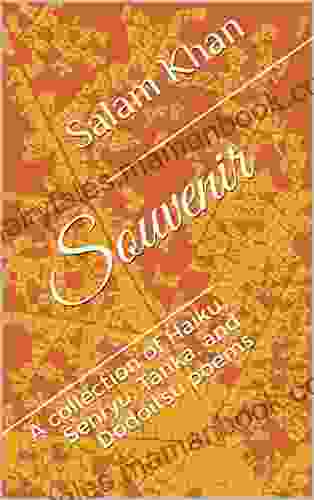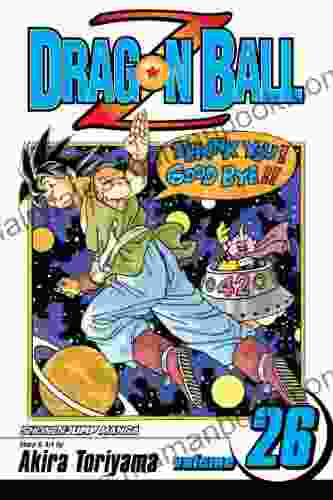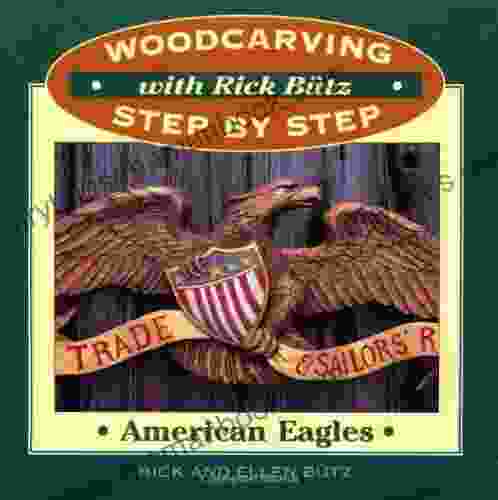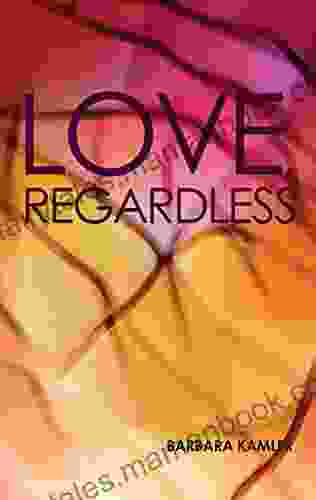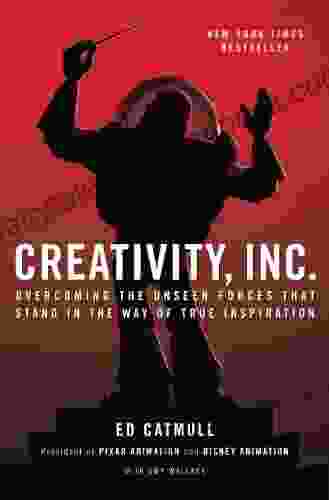A Comprehensive Exploration of Haiku, Senryu, Tanka, and Dodoitsu Poetry: Unveiling Their Unique Charms

Japanese literature is renowned for its exquisite and evocative forms of poetry, among which haiku, senryu, tanka, and dotsu stand out as prominent examples. These captivating poetic genres have captivated readers for centuries with their distinct styles, structures, and themes. In this comprehensive article, we will delve into the enchanting world of these Japanese poetic forms, exploring their history, characteristics, and the profound impact they have had on the literary landscape.
The origins of haiku poetry can be traced back to the 17th century, when it emerged as a subset of the longer haibun prose form. Initially known as "hokku," haiku evolved into an independent genre distinguished by its concise and evocative nature. By the 18th century, the term "haiku" had gained widespread acceptance, and the poetic form became firmly established as a beloved expression of Japanese culture.
Senryu poetry, on the other hand, emerged in the mid-18th century as a satiric offshoot of haiku. Senryu poets employed the same three-line structure and 5-7-5 syllable count as haiku, but their focus shifted towards humorous and often acerbic observations of everyday life.
5 out of 5
| Language | : | English |
| File size | : | 9466 KB |
| Text-to-Speech | : | Enabled |
| Screen Reader | : | Supported |
| Enhanced typesetting | : | Enabled |
| Print length | : | 42 pages |
| Lending | : | Enabled |
| Hardcover | : | 110 pages |
| Item Weight | : | 11.9 ounces |
| Dimensions | : | 6.14 x 0.31 x 9.21 inches |
Tanka poetry, with its slightly longer form, has roots in the ancient Japanese waka poetry tradition. Tanka poems consist of five lines, following a specific syllable count of 5-7-5-7-7. The tanka form gained prominence during the Heian period (794-1185) and continues to be widely practiced today.
Dotsu poetry emerged in the 19th century as a playful and often bawdy form of folk poetry. Dotsu poems are characterized by their four-line structure and a repeating 7-7-7-5 syllable count. They often explore themes of love, humor, and social commentary.
Despite sharing some commonalities, haiku, senryu, tanka, and dotsu poetry possess distinct characteristics that set them apart as unique genres.
Haiku: Haiku poems are renowned for their brevity and evocative power. They typically capture a single moment in time, often juxtaposing two images or ideas to create a sense of depth and resonance. Haiku poets strive to use concise language and sensory details to evoke vivid imagery and provoke contemplation.
Senryu: Senryu poetry, while sharing the three-line structure and syllable count of haiku, takes a distinctly humorous and often satirical approach. Senryu poets use wit and irony to poke fun at human foibles and the absurdities of everyday life. Senryu poems offer a wry and often irreverent perspective on the world.
Tanka: Tanka poems expand upon the haiku form, offering a more developed narrative or reflection. Tanka poets use the five-line structure to explore a wider range of themes, including love, loss, nature, and the human condition. Tanka poems often feature a subtle shift or "cutting word" between the upper three lines (kami no ku) and the lower two lines (shimo no ku).
Dotsu: Dotsu poetry embraces a playful and often bawdy tone. Dotsu poems frequently explore themes of love, relationships, and social issues with a touch of humor and wit. Their four-line structure and repetitive syllable count lend a catchy and memorable quality to these poems.
Throughout history, haiku, senryu, tanka, and dotsu poetry have left an indelible mark on Japanese culture and beyond. These poetic forms have been celebrated for their ability to capture the essence of a moment, provoke laughter, explore human emotions, and provide social commentary.
Haiku has become a beloved form of nature poetry, capturing the beauty and transience of the natural world. Senryu's satirical edge has resonated with readers who appreciate its witty and often subversive take on human nature. Tanka's lyrical qualities have made it a popular choice for expressing love, loss, and other profound emotions. Dotsu's playful and bawdy nature has brought joy and laughter to countless readers.
Beyond Japan, these poetic forms have also gained recognition and appreciation in Western literature. Haiku, in particular, has influenced a number of modernist and contemporary poets, including Ezra Pound, William Carlos Williams, and Allen Ginsberg. The brevity and evocative power of haiku have appealed to poets seeking to distill their thoughts and impressions into a concise and impactful form.
In the contemporary era, haiku, senryu, tanka, and dotsu poetry continue to thrive and evolve. Poets around the world utilize these forms to express their unique perspectives and connect with audiences on a variety of platforms.
Haiku and senryu have found a home in online communities and literary journals, where poets share their concise and evocative observations with a global readership. Tanka poetry has gained popularity as a vehicle for exploring personal narratives and intimate reflections. Dotsu's playful and often humorous spirit endures in contemporary poetry, offering a lighthearted and entertaining perspective on the human experience.
Moreover, these poetic forms have found new expressions in other art forms. Haiku, for instance, has been incorporated into visual arts, dance, and music. Senryu's satirical edge has been employed in political commentary and social activism. Tanka's lyrical qualities have inspired song lyrics and operatic compositions. Dotsu's catchy rhythms have found their way into popular music and other performance genres.
Through their unique styles, themes, and enduring appeal, haiku, senryu, tanka, and dotsu poetry have enriched the literary landscape for centuries. These poetic forms offer a glimpse into the Japanese cultural ethos, capturing the beauty of nature, the humor of everyday life, the complexities of human emotions, and the importance of social commentary. Whether read in their original language or translated into other tongues, these poems continue to resonate with readers around the world, providing moments of contemplation, laughter, and profound insight. As we delve deeper into the enchanting world of Japanese poetry, we discover a treasure trove of literary gems that continue to inspire and delight generations of readers.
5 out of 5
| Language | : | English |
| File size | : | 9466 KB |
| Text-to-Speech | : | Enabled |
| Screen Reader | : | Supported |
| Enhanced typesetting | : | Enabled |
| Print length | : | 42 pages |
| Lending | : | Enabled |
| Hardcover | : | 110 pages |
| Item Weight | : | 11.9 ounces |
| Dimensions | : | 6.14 x 0.31 x 9.21 inches |
Do you want to contribute by writing guest posts on this blog?
Please contact us and send us a resume of previous articles that you have written.
 Top Book
Top Book Novel
Novel Fiction
Fiction Nonfiction
Nonfiction Literature
Literature Paperback
Paperback Hardcover
Hardcover E-book
E-book Audiobook
Audiobook Bestseller
Bestseller Classic
Classic Mystery
Mystery Thriller
Thriller Romance
Romance Fantasy
Fantasy Science Fiction
Science Fiction Biography
Biography Memoir
Memoir Autobiography
Autobiography Poetry
Poetry Drama
Drama Historical Fiction
Historical Fiction Self-help
Self-help Young Adult
Young Adult Childrens Books
Childrens Books Graphic Novel
Graphic Novel Anthology
Anthology Series
Series Encyclopedia
Encyclopedia Reference
Reference Guidebook
Guidebook Textbook
Textbook Workbook
Workbook Journal
Journal Diary
Diary Manuscript
Manuscript Folio
Folio Pulp Fiction
Pulp Fiction Short Stories
Short Stories Fairy Tales
Fairy Tales Fables
Fables Mythology
Mythology Philosophy
Philosophy Religion
Religion Spirituality
Spirituality Essays
Essays Critique
Critique Commentary
Commentary Glossary
Glossary Bibliography
Bibliography Index
Index Table of Contents
Table of Contents Preface
Preface Introduction
Introduction Foreword
Foreword Afterword
Afterword Appendices
Appendices Annotations
Annotations Footnotes
Footnotes Epilogue
Epilogue Prologue
Prologue Dan Winchester
Dan Winchester Vicki Abeles
Vicki Abeles Joyce Lee
Joyce Lee Kristen Strassel
Kristen Strassel W L Liberman
W L Liberman Tj Waters
Tj Waters Lynn M Sargeant
Lynn M Sargeant Jorie Graham
Jorie Graham Peter M Ginter
Peter M Ginter Christos Yannaras
Christos Yannaras Rachel Amphlett
Rachel Amphlett Kathryn Harkup
Kathryn Harkup Martha Cheng
Martha Cheng Dr Velma Bagby
Dr Velma Bagby Anna King
Anna King Ecem Yucel
Ecem Yucel Stephanie Pedersen
Stephanie Pedersen Eliza Victoria
Eliza Victoria Karen Matteck
Karen Matteck Michael Coffey
Michael Coffey
Light bulbAdvertise smarter! Our strategic ad space ensures maximum exposure. Reserve your spot today!
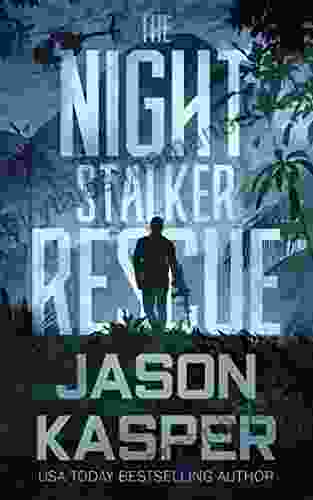
 Hamilton BellThe Night Stalker Rescue Shadow Strike Novella: A Literary Adventure into the...
Hamilton BellThe Night Stalker Rescue Shadow Strike Novella: A Literary Adventure into the... Leslie CarterFollow ·11.6k
Leslie CarterFollow ·11.6k Dave SimmonsFollow ·17.2k
Dave SimmonsFollow ·17.2k Bryson HayesFollow ·12.5k
Bryson HayesFollow ·12.5k Osamu DazaiFollow ·11.3k
Osamu DazaiFollow ·11.3k Zadie SmithFollow ·17.8k
Zadie SmithFollow ·17.8k Colin FosterFollow ·11.2k
Colin FosterFollow ·11.2k Corbin PowellFollow ·19.6k
Corbin PowellFollow ·19.6k Brett SimmonsFollow ·18.3k
Brett SimmonsFollow ·18.3k
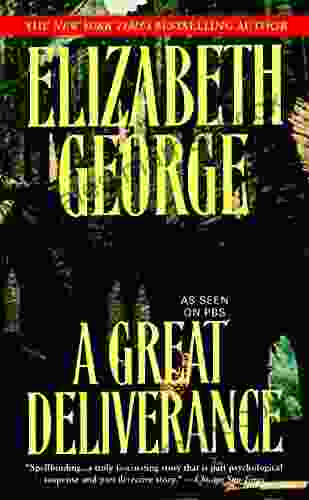
 Edwin Cox
Edwin CoxThe Great Deliverance Inspector Lynley: A Literary...
: In the realm of detective fiction,...

 Christian Carter
Christian CarterMetal Gear Solid Ground Zeroes Guide, Walkthrough, Tips,...
Metal Gear Solid...
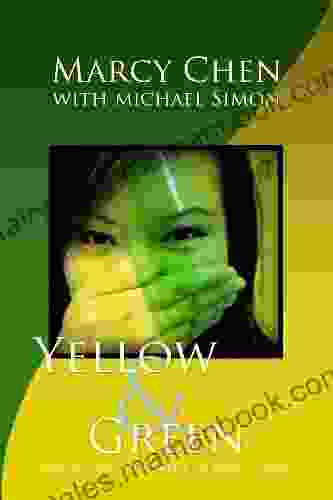
 Branden Simmons
Branden SimmonsYellow Green: Not an Autobiography of Marcy Chen
Yellow Green:...
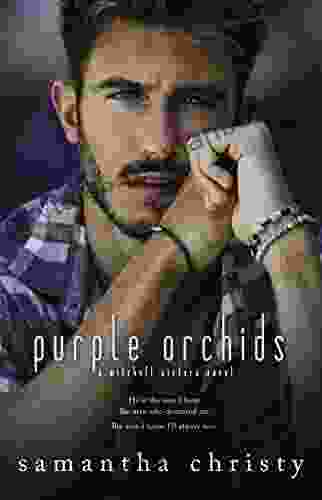
 Edward Reed
Edward ReedPurple Orchids: An Artistic Tale of Two Sisters in the...
Prologue: A Legacy Unveiled In the...

 Earl Williams
Earl WilliamsThe Evolving Housing Market Dynamics in Africa:...
The African housing market is a...
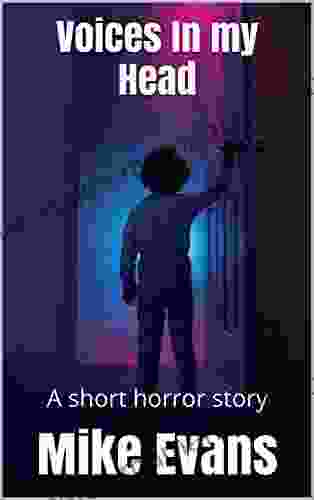
 William Faulkner
William FaulknerVoices In My Head: A Cerebral Symphony of Terror
In the labyrinthine...
5 out of 5
| Language | : | English |
| File size | : | 9466 KB |
| Text-to-Speech | : | Enabled |
| Screen Reader | : | Supported |
| Enhanced typesetting | : | Enabled |
| Print length | : | 42 pages |
| Lending | : | Enabled |
| Hardcover | : | 110 pages |
| Item Weight | : | 11.9 ounces |
| Dimensions | : | 6.14 x 0.31 x 9.21 inches |


